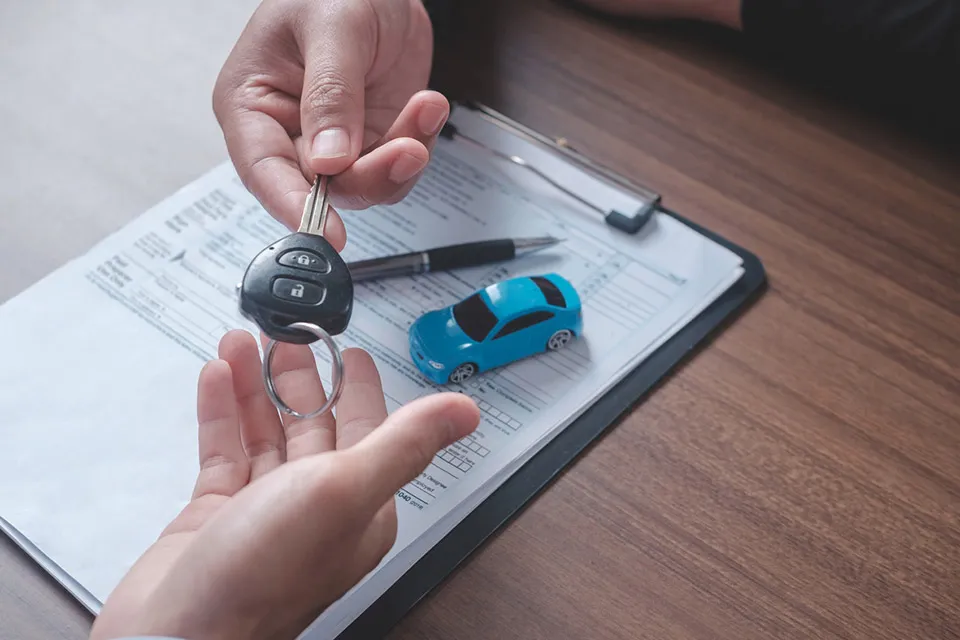Understanding Taxes On Leased Cars

One of the most crucial costs to take into account when leasing a car is tax. In order to precisely evaluate the expenses of leasing a car, you must understand how tax on a leased automobile works, which can be a little confusing. Here at GoodCar, we'll go through the various taxes that apply to leased cars, how they're calculated, and how they might influence your tax payments.
What Taxes Are Used On A Leased Car?
Sales tax and use tax are the two sorts of taxes that might be imposed on a leased vehicle. Usually added to the cost of buying a car, sales tax is a tax on the sale of products and services. Contrarily, a usage tax is a tax on the use of a vehicle and is frequently imposed on leased cars. States that do not impose a sales tax on leased cars typically impose a use tax instead.
How Is Sales Tax Calculated On A Car Lease?
For calculating sales tax on a car lease, you simply take your state's sales tax rate and multiply it by the total of your monthly payments. But the way car lease tax is calculated can change based on the state you're in and the specifics of your lease agreement. However, in general, the tax on a leased car is calculated based on the following factors:
- Lease Payments: Normally, the tax is computed based on the lease payments made each month. The tax will be computed using the total payments made during the lease's extended term, such as 36 or 48 months.
- Sales or Use Tax Rate: The sales or use tax rate for your state and local area will determine the tax rate applied to your lease payments.
- Cap Cost: The tax computation may also be impacted by the vehicle's capitalized cost (cap cost). The tax is often added to the cap cost, which is the vehicle's agreed price.
Additional Tips For Calculating Tax on a Leased Car
- Check Your State's Tax Laws: Checking your state's tax regulations on leased automobiles is the first step. This will clarify the tax rate and whether sales tax or use tax will be charged on your lease.
- Ask Your Dealer: The tax estimate for your lease can also be obtained from your dealer. They may outline the tax fees and explain how they are computed for you. Also, they may provide you an example lease agreement that illustrates how tax is incorporated into the monthly payments.
- Use an Online Calculator: There are several online calculators that may be used to determine the tax on a leased vehicle. These calculators often ask you to enter details like the lease period, monthly payments, and tax rate before giving you a ballpark figure for your tax obligations.
- Understand the Fees: There can be other charges when leasing an automobile, in addition to taxes, that will affect your monthly payments. In addition to other administrative costs, these fees could include a disposal charge at the conclusion of the lease and an acquisition fee at the start. Be sure you comprehend the expenses that are covered by your lease agreement as well as how they are determined.
- Negotiate the Lease: You have the option to negotiate the lease conditions, including the cost of the vehicle and the monthly lease payments, when leasing an automobile. It's crucial to do your homework and be ready to haggle with the dealer since negotiating a lower price can lessen the amount of tax you will pay on the car.
What Factors Affect Tax on a Leased Car?
Several factors can affect the sales tax on a leased car, including the state in which you live, the length of the lease, and the type of vehicle you are leasing.
- State: The taxes on a leased car varies depending on the state in which you live. Some states impose use tax while others impose sales tax on leased cars. In some places, leasing a car may result in a higher tax rate than buying one.
- Lease Length: The taxes on a leased car may also vary depending on how long the lease is. Generally speaking, as you will be making more payments over time, the longer the lease, the more tax you will have to pay.
- Vehicle Type: The sort of car you are leasing may also have an impact on how much tax you pay. For different kinds of automobiles, such as premium cars or electric cars, several states have varied tax rates.
- Upfront Costs: The sales tax on a leased car may also be impacted by any up-front expenses, like a down payment or security deposit. As these expenses are frequently taxed, the more you pay up front, the more tax you will have to pay.

EV Lease Tax Credit
There could be more tax breaks available if you're thinking about leasing an electric car, which might lower your tax obligations. Electric vehicle buyers and lessees can take advantage of tax incentives and rebates provided by the federal government and some states.
Purchasing or leasing a new electric car may qualify you for up to $7,500 in federal tax credits. Once the manufacturer has sold 200,000 qualified vehicles in the US, the credit, which is based on the size of the vehicle's battery, starts to fade out. General Motors and Tesla vehicles are no longer eligible for the EV tax credit as of 2021, although other manufacturers may still be.
A few states also provide their own tax credit for leasing electric vehicles in addition to the federal tax credit. These incentives might take the form of tax breaks, refunds, or exemptions from use or sales taxes. Examining the incentives offered in your region is crucial because the availability and value of these incentives varies by state.
Know What to Expect When Opting to Lease a Car
An essential step in the leasing procedure is comprehending tax on a leased car. Making educated selections while choosing a lease agreement and negotiating with the dealer is possible if you are aware of how taxes are calculated and the variables that may have an impact on your tax payments. Also, learning about the tax benefits offered for leasing electric vehicles can lower your lease payments and promote environmentally friendly driving.
FREE Vehicle Search
- Accidents
- Problem Checks
- Title Records
- Recalls
- Values
- Specs
-
InfoPay, Inc. (dba GoodCar) is an Approved NMVTIS Data Provider
-
-































